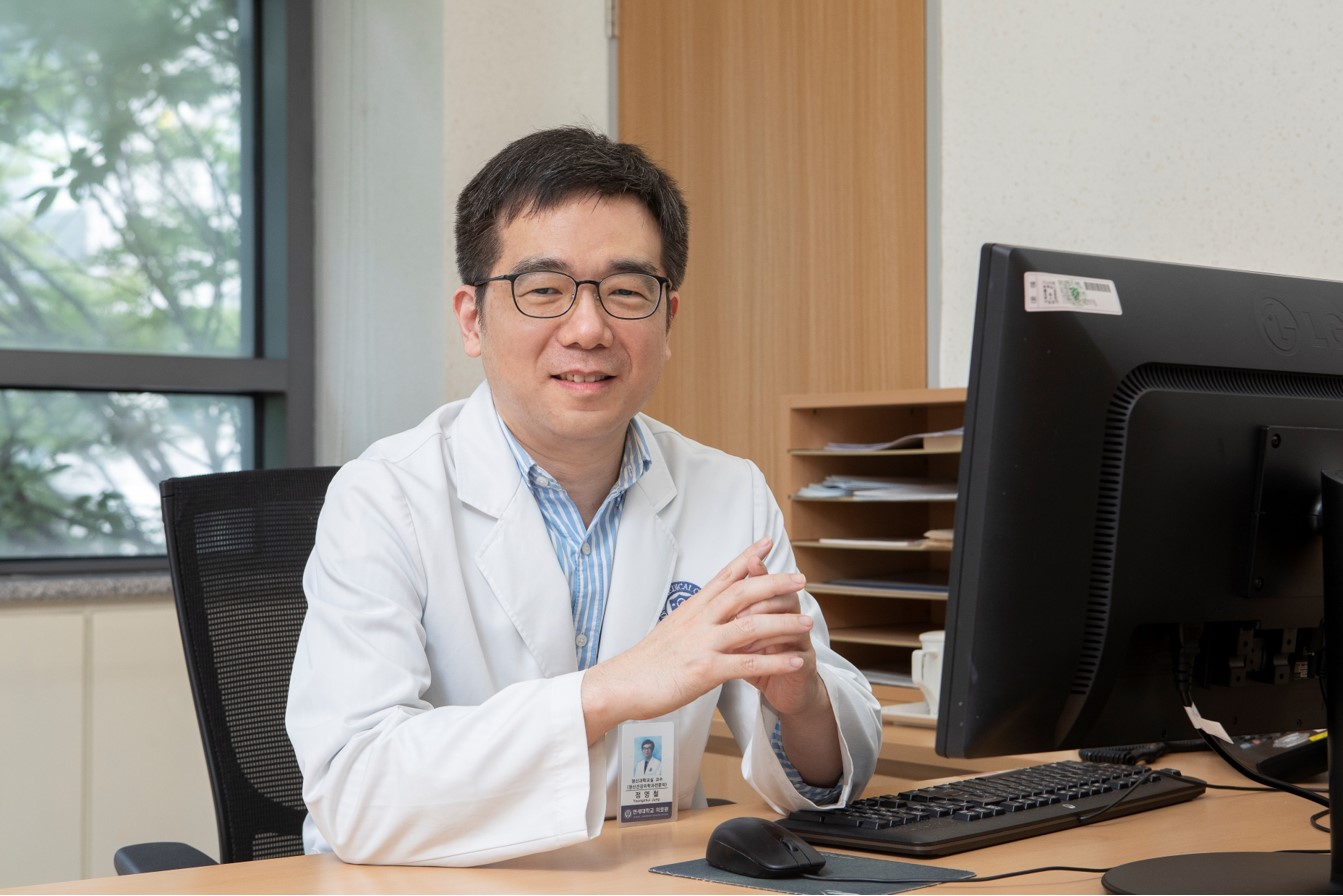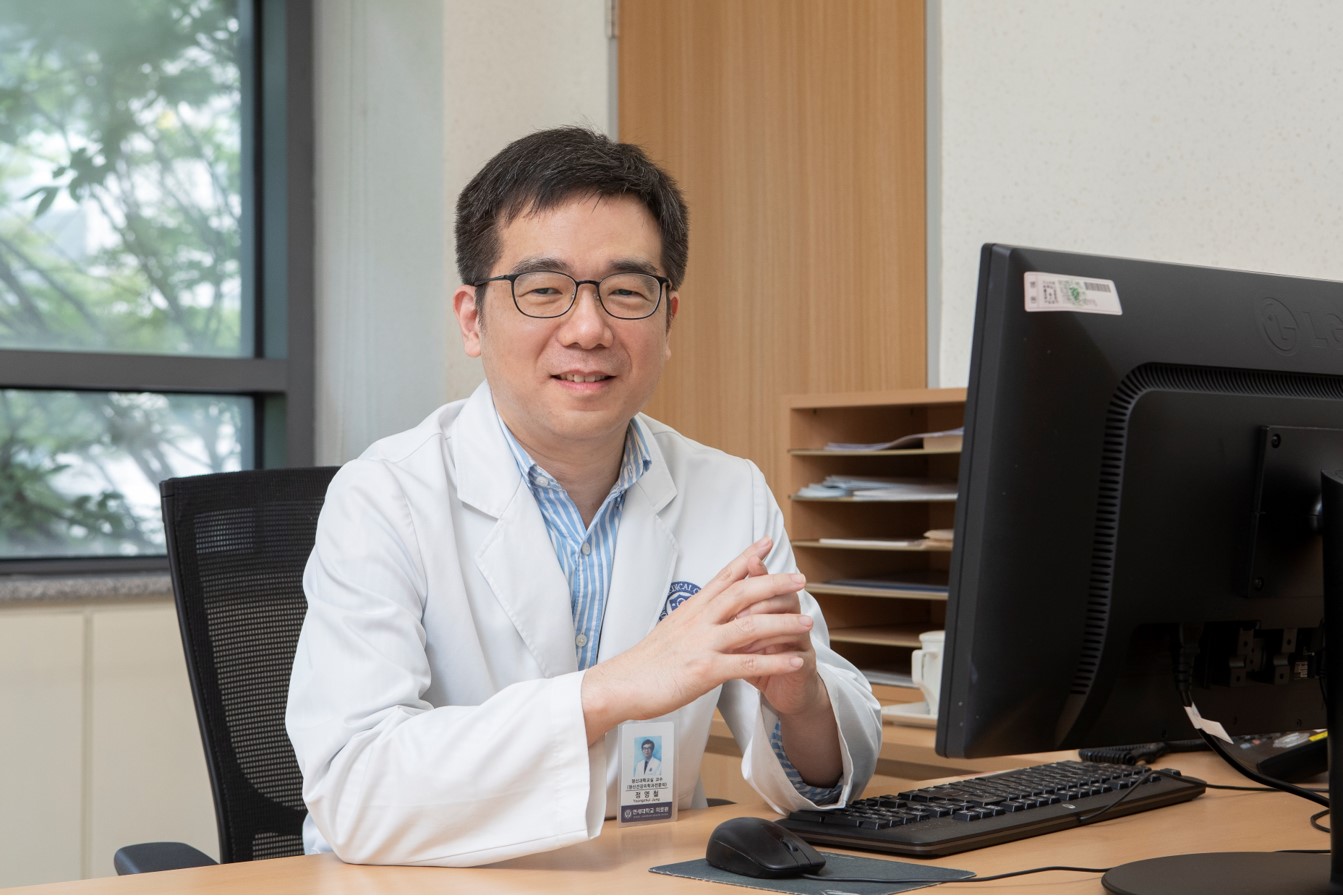- Facing Anxiety and Depression amid COVID-19: The “Corona Blue” Message October 13, 2020
-
Prof. Jung Young-Chul (Psychiatry) shows how to cope with anxiety and depression amid the COVID-19 pandemic
The COVID-19 pandemic, which first began in December 2019, has completely changed our daily lives of the global community. It has been about nine months since South Korea’s first COVID-19 patient was identified on January 20, 2020. Due to unprecedented social distancing measures, economic activities have decreased and people’s livelihoods are negatively affected. The social distancing level in the Seoul Metropolitan area was elevated to level 2 on August 19 and then to level 2.5 on August 30. Although we have already entered the final quarter of the year, schools and workplaces are still busy adjusting to non-face-to-face and online systems. Important business meetings are held online, and gatherings with friends are discouraged. All major events have been canceled or are held virtually at a smaller scale.
With all members of society complaining of pandemic-induced stress, anxiety turns into depression. It is now not uncommon to see news reports of people’s angry outbursts over small matters. At a time when the overall mental well-being of society has deteriorated, Professor Jung Young-Chul of the Department of Psychiatry at Yonsei University in Seoul, Korea, explains how to cope with anxiety and depression in the COVID-19 era.

A message of depression due to the prolonged COVID-19 pandemic
“With the prolonged COVID-19 outbreak, a rising number of people complain of anxiety, depression, and helplessness due to the stress associated with it. A new term called ‘Corona Blue’ (depression and lethargy due to self-isolation and social distancing) was coined. But if you think about it, it would be even stranger if people were not being depressed during an abnormal situation that has continued for nine months.”
Professor Jung describes Corona Blue as “a normal reaction to an abnormal situation.” Then, how should we understand the “normal reaction” of Corona Blue?
“We use the term sixth sense when assessing a situation with intuition rather than analytical thinking. Emotions and intuition play key roles in making good decisions – even as much as reason and logic. If we don’t see depression as a pathological symptom to overcome, but rather as a signal sent from our bodies, the feeling of depression contains a message that we should address.”
Understanding anxiety and depression
So what message should we accept and understand from the anxiety and depression experienced by the prolonged COVID-19 situation?
“Anxiety is an emotion we experience in situations where we cannot predict the outcome. It is the signal that keeps you alert and focused on your ever-changing situation. On the other hand, we get feelings of depression when forced to accept an unavoidable outcome. When you break up with someone you love, the moment you accept the reality that they will not return, no matter how hard you try, you experience depression.”
Professor Jung explains that instead of the saying “If at first you don’t succeed, try, try, try again,” you start thinking, “I’ll just give up after trying a few times,” this mindset is a signal of depression. Therefore, the feeling of depression sends a message not to waste our energy excessively to overcome an uncontrollable situation like COVID-19.
“The signal of depression can be perceived as a message sent from our body to wait patiently and preserve our energy while accepting the current situation.”
The wise approach: Wait it out
The COVID-19 pandemic is severely disrupting the world. Despite continuous efforts, the current crisis and circumstances caused by this highly infectious disease will not change immediately. Nobody is completely safe from the disease, and people are afraid of face-to-face contact. What if you continue to feel helpless in this situation, and lose interest and motivation in everything? Professor Jung advises how to cope with the Corona Blue that is spreading widely along with the virus.
“One way to overcome the current situation is to try to think positively and start exercising again. Or a wiser approach may be waiting it out patiently. Corona Blue, characterized by a feeling of helplessness, loss of interest and motivation, and depressed mood, can be seen as a signal from our bodies to continue social distancing.”
No one knows when the COVID-19 pandemic will end. As expectations fade that it will end soon, the anger and frustration of thinking, “How long do I have to live like this?” is rising. More people are getting into fights on public transportation over facemask-wearing and displaying erratic behavior while violating quarantine rules. According to Professor Jung, these people have pathological symptoms that require professional care, while others show a more regular reaction to depression.
To prevent clinical depression
According to Professor Jung, about 20 percent of people with Corona Blue suffer from clinical depression at the level of needing medical treatment. At the same time, he says that it is important to perceive depression as a normal reaction. He explains the difference between clinical and “regular” depression as follows.
“First, clinical depression exhibits severe neurovegetative symptoms associated with depression. Experiencing insomnia from only 3-4 hours of sleep for over a month or sudden weight loss of 5-6 kilograms due to reduced appetite… These are no longer normal reactions. Second, cognitive distortion occurs. People interpret the difficulties of COVID-19 too personally or give excessive meaning. Typical cases of cognitive distortion include the mother who gets frustrated while caring for her young kids at home for several months, saying, ‘I am a bad mother. I don’t deserve to be a mother,’ or the young man who closed his start-up after preparing for years, lamenting, ‘I can’t do anything right. I have no reason to live.’”
In other words, if you blame yourself for suffering from the inevitable repercussions of COVID-19, “regular” depression can quickly develop into clinical depression. When I attribute the cause of a problem to myself, even though it is not my fault, this mindset leads to pathological anxiety and anger. So how can we manage such anger and stress?
I object: The need for new perspective
As the COVID-19 pandemic continues, people’s anxiety is shifting to depression with increasing anger levels. Professor Jung explains that accepting change due to unavoidable aspects leads to depression rather than the stress caused by the future's uncertainty. This shift to depression leads to a more realistic perspective.
“Depression can lead to pessimistic thoughts, but in some cases, it can lead to a more objective view of the situation. Ninety-four percent of university professors believe that they are better than the average professor. Most smokers believe that they will not get lung cancer. Our brain, although it prides itself as rational, has a built-in optimism bias. On the other hand, when a depressed person gambles, it is known that he will predict his odds more objectively than the average person. With the COVID-19 pandemic continuously threatening society, our optimistic bias can have a more negative than positive impact. Perhaps we may need to listen to the voice of mild depression to compensate for our optimistic bias.”
Professor Jung’s recommendation to patiently wait and endure the COVID-19 situation suggests that people should recognize that it is a difficult time for everyone and accept that the feelings of depression caused by these unprecedented circumstances are normal. Rather than getting upset and blaming ourselves, it seems we need the peace of mind to understand and accept that things just happen, even when feelings of anger arise at times.
*Profile of Professor Jung Young-Chul
Affiliation
Department of Psychiatry, College of Medicine
Institute of Behavioral Science in Medicine (IBSM)
Education
B.M., Yonsei University College of Medicine
M.D., Ph.D., Yonsei University Graduate School of Public Health
Work Experience
Professor, Department of Psychiatry, Yonsei University College of Medicine
Visiting Associate Professor, Stanford University
Associate Dean of Student Affairs, Yonsei University College of Medicine
Associate Director, Medical Research Center, Yonsei University Health System
Research fields
Computational Psychiatry, Functional MRI, Digital Therapeutics
show mobile menu
mobile menu




